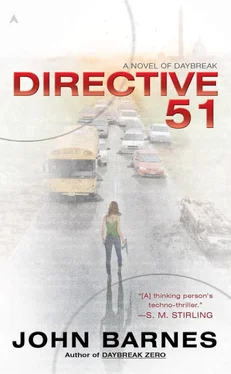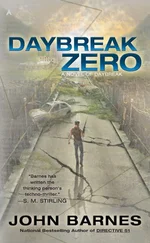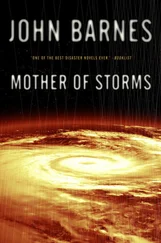Chris collected man-in-the-streets from a crew of the workers at a bar called Dawgz Inn; they were pretty happy about having work and getting paid in meals and sleeping quarters, and they all said the idea of a newspaper in town just seemed to fit in with being the capital.
He didn’t hurry, figuring he could always find Abel Marx the next day or the day after, and he stopped several more people for his man-in-the-streets, figuring they’d talk about it and the rumor mill would be running in his favor by the time the first issue came out. No doubt, for some in the town the arrival of the Federal government was just one more disaster—their reasonably orderly lives turned upside-down by an infestation of pushy strangers. For others, of course, it was going to be a gold mine, and probably a lot of them were praying their thanks regularly.
The shop was where he’d been told; a cardboard sign in the window proclaimed
ABEL MARX, PRINTER
POSTERS, FLYERS, PUBLICITY
BOOKS AND MAGAZINES
NO JOB TOO BIG OR TOO SMALL
The man behind the counter was huge, with immense, dark, sensitive eyes, deep brown skin, and a south coast Georgia accent as thick and slow-moving as a swamp creek. He listened to Chris for a while, and then gave him a slow, broad smile. “So you got no capital to launch on?”
“Depends on whether you think of canned tuna, tomatoes, and chicken soup as capital.”
Marx laughed. “Guess it does. What I was thinking about, though, is this. This town needs a paper. I need work. You need to get a paper out there. That sounds like a good bet to me. So instead of worrying about the bill, how about, you put it together, I print it, and I’m say forty-percent owner of the paper?”
“Deal.” I’ d’ve given him forty-nine if he asked.
“You happen to have a place you’re staying?”
“Not yet, I’m here with what I walked into town with.”
Marx grinned at him. “My mother owns this building. There’s an office next door that could make a good newspaper office, I guess, get a few desks in there, and we have at least four up in storage, you and me could move them down there. And there’s a little one-bedroom apartment up there that might work for a man who doesn’t have too much, you know, specially since they got city water coming back on in a week or two they think, and water’s included. Got a old woodstove we can drag up there, you could even heat a couple big pots of water on it and have yourself a bath now and then.”
“Mr. Marx—”
“Call me Abel.”
“Abel, then. And I’m Chris. Uh, what field were you in before Daybreak? I mean, you said you liked printing because your father and grandfather were printers, you didn’t say you were one before now, so, I was just wondering—”
Abel grinned at him. “Up till Halloween, I was a car salesman. Best in the city, four years running.”
They both laughed. “All right,” Chris said. “No sense fighting it when I can see how it’s going to go. How much was your mom thinking of asking for rent on that office space plus that apartment?”
“Well, now, the apartment will be furnished—”
“Abel, how much?”
“Well, cash or canned goods, might be more than you can carry, but if Mom could invest in your paper… say, for the office and the living space, both furnished… twelve percent?”
“Hmm. That would give you controlling interest.”
“If you think I can control my Moms, you got some learning to do.”
“Nonetheless, what if I offered her six percent? Six percent of what is going to be the most influential paper in America?”
“Who reads newspapers anymore? And it ain’t like America is really, you know, America, anymore, not as we knew it, you know…”
“But your descendants will be major stakeholders in the country’s next big media empire.”
“Maybe you have a point. I’d come down to eleven. But you know, we’re fronting everything but the content, and yeah, we need content, but—”
“Now here’s a thought. Maybe I could come up to seven for this. Every paper in the world makes most of its money on advertising, you know. And I can write decent ad copy”—Chris hoped that was true, not having tried yet—“but I don’t know about selling ads to local businesses, that takes a salesman and someone who knows local people—”
“And in between printing, you think… hmm. What’s a normal commission on an ad?”
“Ten on the little ones, twenty on the quarter page or bigger—”
“Call it fifteen and thirty and Mom’s share could go down to nine—I think I could talk her into that.”
“So fifty-one, forty, and nine, and you get fifteen and thirty in commissions?”
Marx nodded.
“Done,” Chris said, sticking his hand out.
After a meal of canned tuna and beans, smeared onto fresh homemade bread, they began shifting the furniture around, as Abel filled Chris in on what his improvised press could and couldn’t do ( actually I bet eventually it can do whatever he really wants it to, Chris thought) and Chris explained the news business ( based on my two months in print journalism—but then, I’ve at least written most of a paper, and he hasn’t printed one yet. We’ll make it work. And I’m gonna have hot baths! )
ONE DAY LATER. CASTLE LARSEN. (JENNER. CALIFORNIA.) 3:18 P.M. PST. TUESDAY. DECEMBER 10.
Bambi had been trying the old tack of deliberately getting off the topic and talking about something the subject liked to talk about, to distract the subject with her own interests, get her to really enjoy talking and having the interrogator’s attention, and then see what she might blurt out.
Ysabel seemed to have the same problem as she’d had on the day of her capture; consciously she wanted to spill everything, but whenever she tried, her nervous system went into spasm. So Bambi had steered Ysabel into talking about the year her parents had worked with creating community-based businesses in a fishing village in Chile. It sounded kind of stupid to Bambi—her parents had put a year of their lives into trying to organize small, occasionally profitable fishing operations, where the boat owner made all the decisions and made all the money, into something where many people participated in the decision and making money was only one consideration. “It doesn’t sound like all that voting and all those meetings would produce much in the way of profits, or fish,” Bambi said, trying to get Ysabel lathered up about defending it.
Ysabel surprised her and laughed. “I was a rebellious fourteen-year-old at the time and I said that to my mother constantly. She about had a fit. For her the fishing business wasn’t about business and wasn’t about fishing, it was…”
She froze.
Oh, crap, how could this trigger a seizure? I didn’t even say the word—
But Ysabel’s tense muscles and mad stare were not a seizure, or at least not yet. She swallowed hard and barked, “ Daybreak . Daybreak! Fucking Daybreak . Daybreak was just like that. Daybreak didn’t care what happened to people, it just wanted to be right , like my damn stupid parents who were so busy being right —like the fishing! The fishing village… you know what Daybreak destroyed in that village, you know what’s gone now?”
Well, at least it’s not a seizure, but I have no idea what she’s so worked up about. “Uh, I guess you’ll have to tell me—”
“Three things—radio, outboard motors, and nylon fishing nets! No weather forecasts to keep them off the sea when bad crap is blowing in, and no way for a boat that hits a big school to help anyone else find it! And without a motor, a fishing boat spends hours and hours just getting in and out of harbor—so they get less hours to fish! And nets that rot—that’s a day or two every week just to keep pulling out the rotten strings and putting in fresh hemp or jute! Probably a lot of villages don’t even have anyone who knows how to make a net by hand anymore! Oh, Christ, what did Daybreak do? What was I thinking?”
Читать дальше












